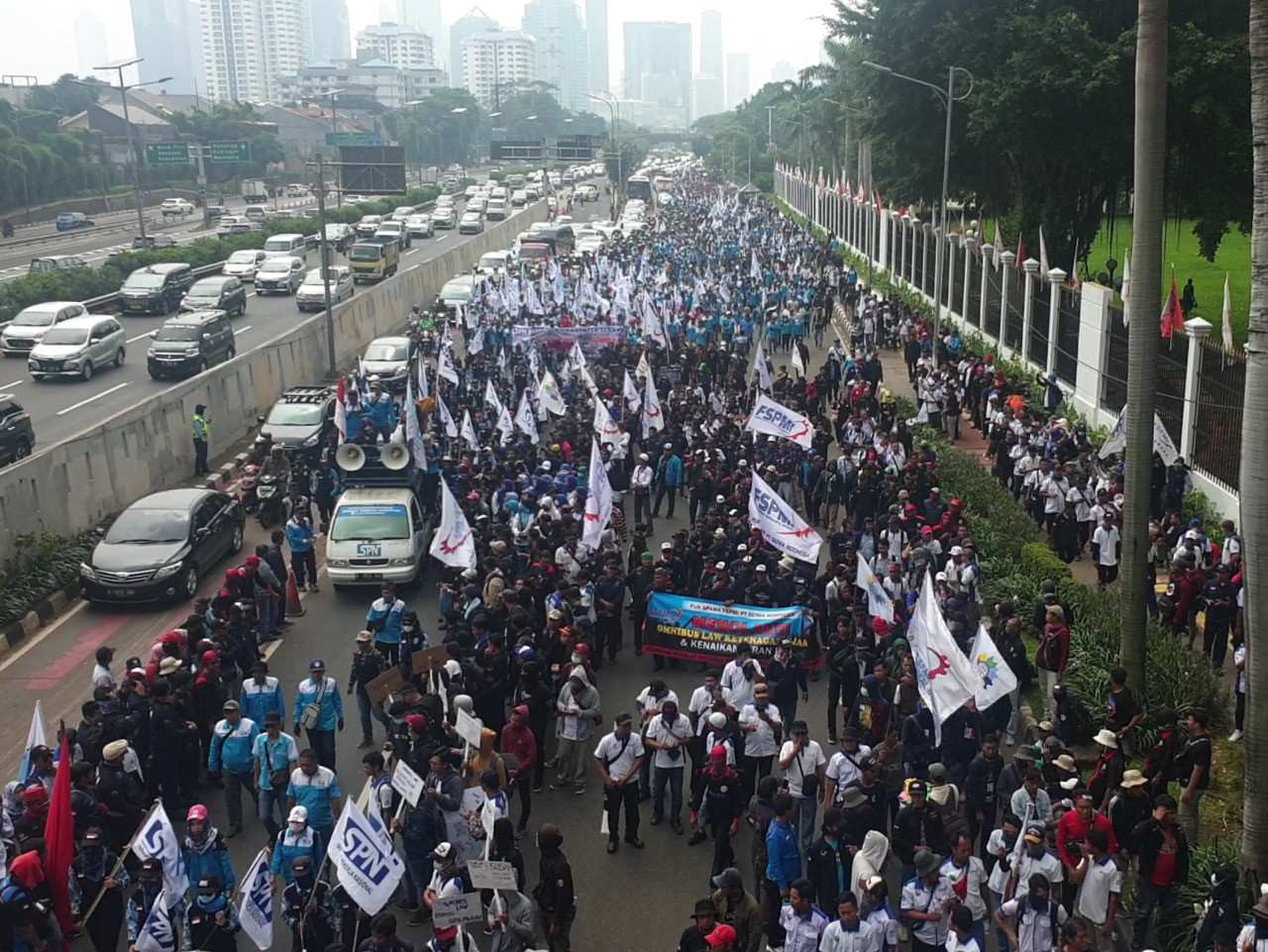
Omnibus bill on job creation: Our last bus to demographic bonus
by Endy BayuniPresident Joko “Jokowi” Widodo is forging ahead with his plan to introduce omnibus bills as a way of circumventing the notoriously time-consuming legislative process as he tries to turn Indonesia into an attractive place to invest, able to compete with any neighboring Asian country.
But as the presentation of two omnibus bills to the House of Representatives becomes imminent — one on job creation and the other on taxation — several groups are already rejecting them before seeing the text.
Some of these concerns are legitimate. Unions and environmental groups fear Jokowi is selling Indonesia out, sacrificing labor rights and environmental protections in the name of bringing in foreign investment. The government says these criticisms are premature since the bills have not even been finalized, but some details have been leaked that have raised the alarms.
Omnibus laws are powerful pieces of legislation that revoke articles in other laws whenever they come into conflict. The omnibus bill on job creation would reportedly affect more than 70 pieces of legislation, including the labor and environmental protection laws. The omnibus bill on taxation would reportedly combine seven pieces of legislation into one.
Missing from the debate, something that President Jokowi could have emphasized again and again since he broached the omnibus bill plans in his Independence Day speech in August, is that these pieces of legislation are essential if Indonesia is going to cash in on the demographic dividend — a phenomenon that occurs when the size of the working-age population of between 14 and 65 years outnumbers dependents.
The demographic dividend, according to one calculation, begins this year. Indonesia has a 16-year window to take economic advantage of this before it faces an aging population.
Creating job opportunities for this huge workforce becomes imperative. Leaving many of them idle would not only squander the opportunity, but it could impose a heavy burden on the nation as those who have no jobs depend on handouts from the government or from those who work.
Jokowi has a huge but not impossible task on his hands. These two omnibus bills are literally the last bus for Indonesia to collect the bonus.
“Job creation” is his overriding concern in his second term, replacing “economic infrastructure” that drove his presidency from 2014 to 2019.
The official unemployment rate of 5.3 percent in August 2019 conceals the reality that many of those surveyed as employed are underemployed. Studies said the underemployment rate could be as high as 30 percent of the workforce and this has serious consequences on their earnings. On top of all this, more than 50 percent of the workforce still has jobs in the informal sector, where job protection is almost nonexistent.
The current Labor Law is the chief target of the omnibus bill on job creation as it is cited repeatedly as one of the reasons why Indonesia is losing out to its Asian neighbors in attracting investors. This was further reinforced by a report in August that showed most American companies relocating out of China because of the ongoing United States-China trade war have gone to Vietnam and some to Thailand and Malaysia. None came to Indonesia.
Both Jokowi and his predecessor Susilo Bambang Yudhoyono tried to reform the Labor Law but they could not take on the unions that each time threatened to call for a general strike.
The omnibus bill looks like a clever ploy for circumventing the unions’ power. You can oppose any move to reform labor laws, but who can openly oppose legislation entitled “job creation”?
Whether this works, time will see, but time is of the essence here. Jokowi has said that reforming all the laws individually that fall under the two omnibus bills would take 50 years.
It is unclear whether the House would be able to pass the bills speedily even if Jokowi’s coalition government of six political parties controls 75 percent of the seats. The House has issued a list of 50 priority bills for legislating in 2020, including the omnibus bills on job creation and taxation. This is seemingly an ambitious target given the House’s poor performance with legislation. From 2014 to 2019, its productivity averaged just seven laws a year, as members spent most of their time posturing on popular issues rather than deliberating over bills.
Time will tell how much support or opposition Jokowi will get from the House and from the public in pushing these two omnibus bills essential to his job creation plans. To complicate matters, the House has next to zero experience legislating an omnibus bill. So the deliberations will likely take time and frustrate the President.
The challenge for the nation and Jokowi is clear. Indonesia’s huge population — at 270 million it is the fourth largest in the world — could be an asset if most everyone is gainfully employed. Indonesia now has the 15th largest economy in the world by virtue of its large population making significant contributions to the overall gross domestic product.
Failing to tap in on the large size of its young population by creating jobs for them, Indonesia will squander the opportunity that happens only once in the lifetime of any nation. If Jokowi pulls it off, he will be well on his way to his Vision 2045, when Indonesia makes it to one of the top five economies in the world.